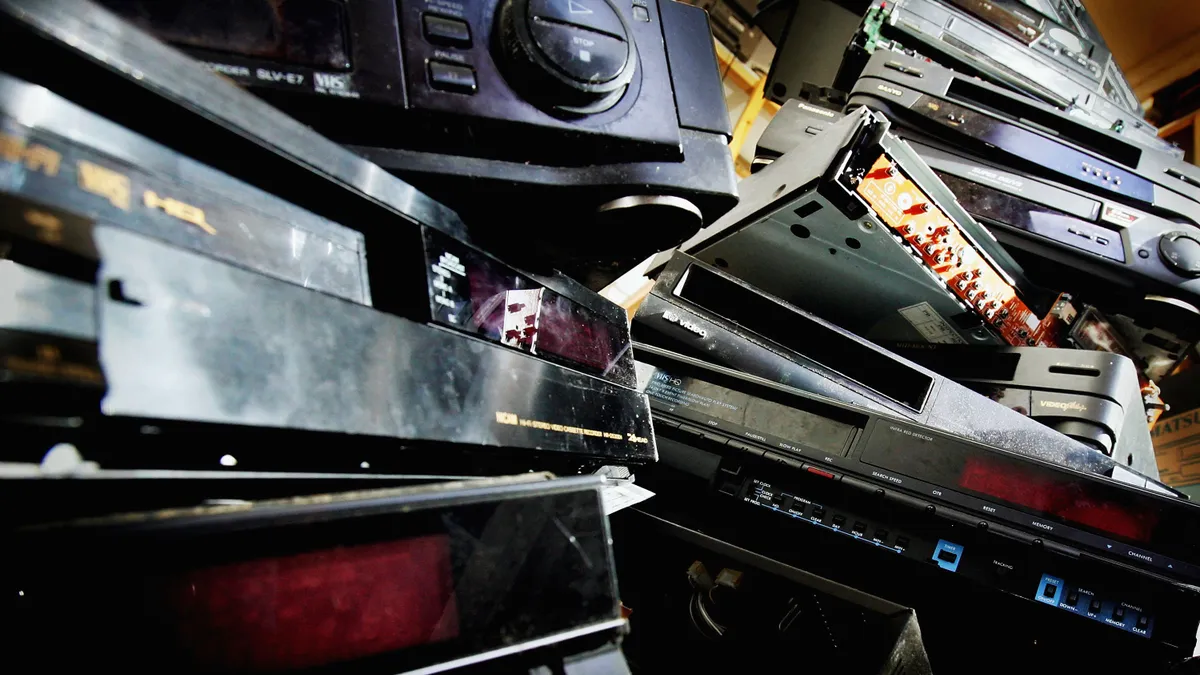Dive Brief:
- Minnesota Gov. Tim Walz has signed a sweeping state budget bill that includes a provision meant to reduce the amount of materials disposed of in landfills or incinerators statewide by 90% by 2045.
- The law calls for the Minnesota Pollution Control Agency to submit an assessment report with recommendations on how to reach the new rate by 2045, using 2021 data as a baseline. That report could help lawmakers to propose more recycling and diversion ideas in coming years, recycling advocates said.
- The governor also signed a separate right-to-repair bill today, which covers most types of devices like phones and computers sold or in use after Jan. 1, 2024. Supporters say the Digital Fair Repair Act will help extend the life of electronics and keep them out of landfills.
Dive Insight:
The state is set to spend a “historic sum” of $2 billion on natural resources protections and other environmental measures after a Democratic sweep in Minnesota’s legislative elections last year, the Star Tribune reported.
The budget bill doesn't attach specific funding for the recycling and waste report. However, the report could still help lawmakers approve significant recycling investments or policy changes in the future, said Paul Gardner, board chair of the Recycling Association of Minnesota.
“Those of us in the industry know how we can get to that higher [diversion] goal, but a report will probably give the legislature the information it needs to take the action they want.”
Though some municipalities or counties have their own diversion goals, the proposed 90% diversion rate goal is new for Minnesota, he said. The Twin Cities metro area, which covers seven counties, has a 75% combined recycling and organics recovery goal by 2030, plus a 5% waste reduction goal.
The report, which is due by July 15, 2024, calls for numerous details on Minnesota’s current waste generation and how much of it is reused, recycled, composted, digested or disposed. It calls for an analysis of “waste prevention program impacts and opportunities” and requires estimates of the capacity needed for the state to recycle, compost and send material to anaerobic digestion in order to meet the 90% rate. The report must also have recommendations on how local governments, industry and community groups should work together on waste diversion efforts and how to reduce pollution impacts in environmental justice communities.
The law calls for the report to focus on recommendations and solutions that are above waste-to-energy on the state waste hierarchy, meaning options that prioritize reduction, recycling, reuse and organics recycling.
The Recycling Association of Minnesota says it supports initiatives that help raise recycling rates. It’s currently advocating for better organics diversion infrastructure, as well as a possible extended producer responsibility for packaging policy that Gardner thinks could be proposed next year. The group also calls for an EPR for batteries program and better systems to manage bulky items like carpet and mattresses.
“There is a legislature in place right now that would be amenable to moving on all the above items, so there is an opportunity in 2024 to see a comprehensive package,” he said.
Meanwhile, supporters are applauding the Digital Fair Repair Act, which requires original equipment manufacturers make tools, parts, and documentation available to independent repair providers. The law applies to most kinds of electronics but doesn’t apply to motor vehicles or medical devices.
Right to repair advocates say consumers should be able to go to third-party companies to repair their devices or have access to ways they can fix the items themselves. Minnesota’s law will be more wide-ranging than the one adopted last year in New York. That state’s right-to-repair law applies only to personal electronics and has other exemptions.
Kyle Wiens, CEO of iFixit, said the organization has been a key supporter of right-to-repair initiatives in Minnesota and other states and sees the bill as a jumping off point for other states to adopt similar legislation.
Numerous other states are currently considering right-to-repair legislation. A bill in California, supported by iFixit and other repair groups, passed a recent committee vote, though a similar version failed to pass last year. Some major electronics companies have historically pushed back on such bills, though companies like Microsoft have started shifting their position.
Recycling industry representatives like the Institute of Scrap Recycling Industries supports right-to-repair initiatives. The Biden administration, Federal Trade Commission and numerous state attorneys general have also voiced support.
Editor’s note: This story has been updated to reflect that Gov. Walz signed the right-to-repair legislation.











